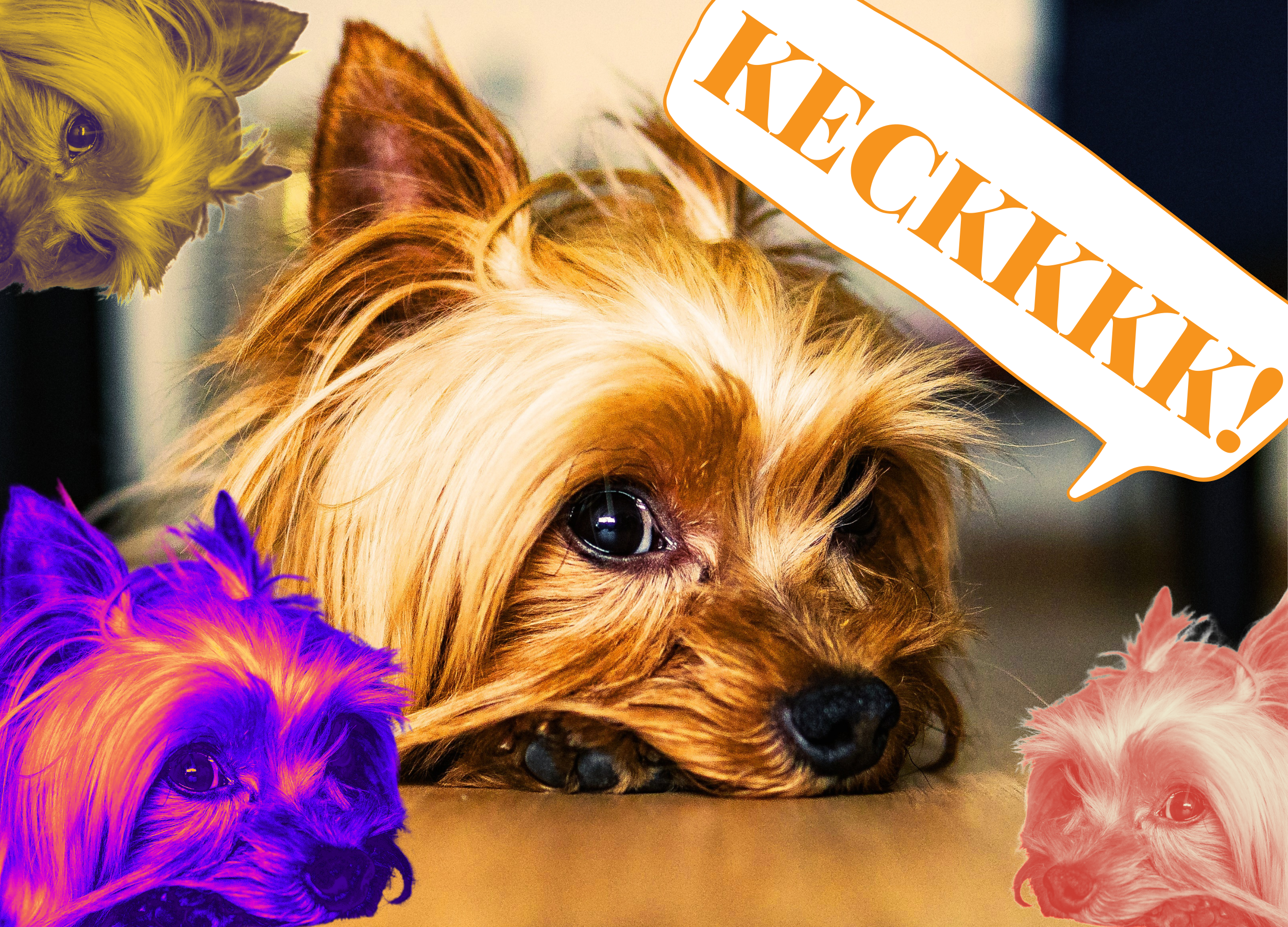For the life of me, I couldn’t understand why she loved him so much.
His name was BuBu.
And my aunt doted upon her little Yorkshire terrier.
He was obnoxiously loud – perpetually barking.
Yap. Yap. Yap.
His bark was high pitched. It was a yapping that was annoying as it was incessant. Whenever I’d try to approach him, he’d start walking backwards until he was completely out of reach – hidden, perhaps by a massive mahogany sofa set or dining table. Still, from the darkness of these foreboding structures he’d bark.
Everything changed when BuBu came to live with us for two months.
My aunt was travelling. She left a silent, reserved and depressed BuBu in our house. The first day, Bubu hid under the sofa, whimpering. My mother, a true dog lover, laid flat on the ground with him for hours. She fed him with her hands and cooed at him the way my aunt often did.
And that was all it took.
Within days, Bubu transformed in front of our eyes. He loved chin-tickles, coat brushing and especially belly rubs which got his hind leg twitching in glee. After his evening wash, Bubu would dance for us and demand our attention if we didn’t give it to him with short perfunctory barks.
And more than anything else, Bubu loved sleepy times. When the curtains were drawn you could feel this dog’s excitement, relief and deep pleasure for the communal resting time.
“Scheeepu, scheeepu BuBu,” my mother would affectionately imitate my aunt.
And sleep deeply he did. For a tiny dog who weighed no more than 3 kilograms, Bubu would snore as loudly as a grown adult.
Two months with us and he was fattening up well – growing rounder in the midsection.
And for all his historical incessant barking infamy, we never heard a peep from him again.
Except of course when we had visitors. Then, BuBu wasn’t all that happy. He wasn’t happy at all. He wanted them out of the house & he did whatever he could (bark) to get them out.
The transformation of BuBu was a life-changing moment for me.
Strange as it may seem to me, I found myself wondering – how is it possible that we all got it so wrong? For nearly a decade of knowing and visiting Bubu – we completely misunderstood him.
To say I disliked him, would be putting it mildly. I found him annoying. I thought he hated us. He was a disagreeable dog.
How did we get it so wrong?
It was all so clear. Bubu wasn’t being annoying. Bubu was doing what he needed to do to protect his family. He was aggressive and incessant because that is what he was taught to do or genetically inclined to do.
This initial act of bravado was a front. It was a form of posturing.
When it came down to it – he just wanted to nap, get chin tickles and have a good meal. He was a tiny dog – he was scared more than anything else and it showed. He was all bark and no bite.
BuBu – The perfect metaphor for toxic masculinity
I began to use the BuBu metaphor whenever I saw toxic masculinity on display.
When I’d see a man posturing in the gym – banging his weights around, being territorial and hostile to all the other patrons, I now just shake my head. I channel my sister and say something like ‘BuBu is NOT HAPPY. Calm down Bubu!’
If I was hearing about a boss misusing his power to shut down change or progress, I’d channel Rhea and say something like: BuBu doesn’t like change. (It is true, BuBu doesn’t like change).
Turning toxic masculinity into a Bubu-ism demystifies the posturing & acts of bravado.
Likening aggressive patriarchal behavior to the yapping of a high-pitched Yorkie is POWER.
This renaming takes the power away from toxic masculinity. Why? Instead of seeing it as an immovable age-old oppressive system which has led to domination, subjugation and abuse of indigenous people, women and children – toxic masculinity morphs.
It turns toxic masculinity into this somewhat annoying yapping of a tiny little furry dog, with shiny black and blond fur – who refuses to make eye contact with you. It turns it into something that starts to back away and hide under the sofa when you approach it, your hand outstretched.
It softens my heart and makes me think, like I did with BuBu – have I got the whole story wrong for so long? Am I vilifying something I should really be feeling sorry for? After all, toxic masculinity penalizes men as much as it affects everyone else (h/t bell hooks’ Will To Change).
Of course, I use BuBu-ism with discretion.
Calling toxic masculinity BuBuism doesn’t mean excusing the very real harm and terror it causes. It doesn’t mean looking the other way or not holding people accountable. It doesn’t mean not asking for change and advocating the best forward.
It is ultimately helpful to soften the feeling of oppression for the oppressed. It is a way to make the oppressor less intimidating. To bring more empathy and understanding to the situation.
And of course, to bring a little more humor to it all too.




